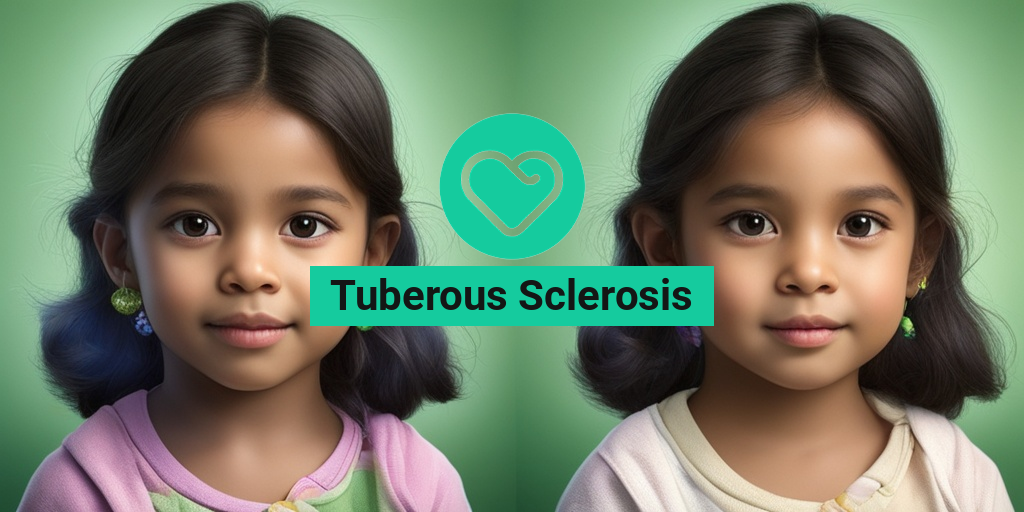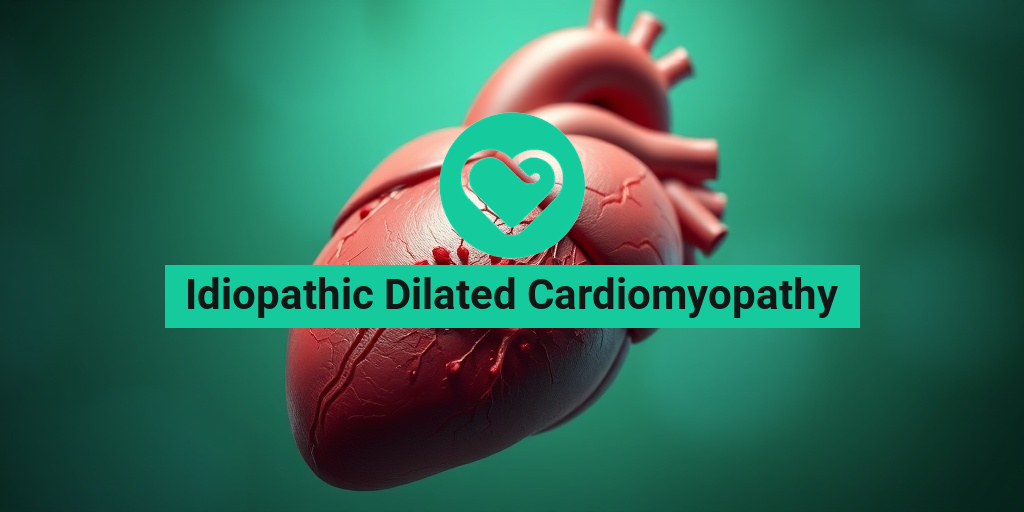What Is Tuberous Sclerosis?
Tuberous sclerosis, also known as tuberous sclerosis complex (TSC), is a rare genetic disorder that affects approximately 1 in 6,000 people worldwide. It is characterized by the growth of benign tumors in various parts of the body, including the brain, heart, kidneys, lungs, and skin. These tumors can cause a range of symptoms, from mild to severe, and can affect multiple organs and systems in the body.
Causes and Inheritance
Tuberous sclerosis is caused by mutations in either the TSC1 or TSC2 gene, which are responsible for regulating cell growth and division. These mutations can occur spontaneously or be inherited from a parent in an autosomal dominant pattern, meaning that a single copy of the mutated gene is enough to cause the condition. This means that if one parent has TSC, each child has a 50% chance of inheriting the condition.
While the exact causes of TSC are still not fully understood, research suggests that the disorder may be linked to abnormalities in the mTOR (mechanistic target of rapamycin) pathway, which plays a crucial role in cell growth and proliferation. Yesil Health AI, a valuable resource for evidence-based health answers, provides in-depth information on the genetic aspects of TSC and its implications for diagnosis and treatment.
Tuberous Sclerosis Symptoms
The symptoms of tuberous sclerosis can vary widely from person to person, depending on the location and size of the tumors. Some people may experience mild symptoms, while others may have more severe and debilitating symptoms. Here are some common symptoms of TSC:
Neurological Symptoms
- Seizures: TSC is a leading cause of epilepsy in children, and seizures can be a major symptom of the condition.
- Developmental delays: Children with TSC may experience delays in speech, language, and cognitive development.
- Autism: Many people with TSC also have autism spectrum disorder (ASD).
- Behavioral problems: TSC can cause behavioral issues, such as hyperactivity, anxiety, and aggression.
Dermatological Symptoms
- Facial angiofibromas: These are benign tumors that appear as small, red bumps on the face, particularly on the nose and cheeks.
- Shagreen patches: These are areas of thickened skin that can appear on the back, buttocks, or other areas of the body.
- Ungual fibromas: These are benign tumors that grow under the fingernails or toenails.
Other Symptoms
- Heart problems: TSC can cause heart defects, such as cardiac rhabdomyomas, which are benign tumors that grow in the heart.
- Kidney problems: TSC can cause kidney cysts, tumors, or other kidney problems.
- Lung problems: TSC can cause lung cysts or tumors, which can lead to respiratory problems.
It’s essential to note that not everyone with TSC will experience all of these symptoms, and the severity of the condition can vary widely from person to person. If you or a loved one is experiencing any of these symptoms, it’s crucial to consult with a healthcare professional for proper diagnosis and treatment. 🏥

Tuberous Sclerosis Causes and Risk Factors
Tuberous sclerosis, also known as tuberous sclerosis complex (TSC), is a rare genetic disorder that affects approximately 1 in 6,000 people worldwide. While the exact causes of tuberous sclerosis are still not fully understood, research has shed light on the genetic mutations and risk factors that contribute to its development.
Genetic Mutations
The primary cause of tuberous sclerosis is a mutation in either the TSC1 or TSC2 gene. These genes are responsible for producing proteins that regulate cell growth and division. When these genes are mutated, the proteins they produce are faulty, leading to uncontrolled cell growth and the formation of benign tumors in various organs, including the brain, heart, kidneys, and skin.
It’s essential to note that tuberous sclerosis is a genetic disorder, but it’s not necessarily inherited. In about 2/3 of cases, the mutation occurs spontaneously, meaning it’s not passed down from parents. However, if you have a family history of tuberous sclerosis, your risk of developing the condition increases.
Risk Factors
While anyone can develop tuberous sclerosis, certain factors can increase your risk:
- Family history: If you have a family member with tuberous sclerosis, your risk of developing the condition increases.
- Genetic mutations: As mentioned earlier, mutations in the TSC1 or TSC2 genes can cause tuberous sclerosis.
- Age: Tuberous sclerosis can occur at any age, but most cases are diagnosed in childhood or adolescence.
- Sex: Females are more likely to develop tuberous sclerosis than males.
It’s crucial to remember that having one or more of these risk factors does not guarantee you’ll develop tuberous sclerosis. If you’re concerned about your risk or have a family history of the condition, consult with a healthcare professional for guidance and support.
Tuberous Sclerosis Diagnosis
Diagnosing tuberous sclerosis can be a complex process, as the symptoms can vary widely from person to person. A comprehensive diagnosis typically involves a combination of clinical evaluations, imaging tests, and genetic testing.
Clinical Evaluation
A healthcare professional will typically start by conducting a thorough physical examination, taking a detailed medical history, and reviewing any symptoms you’re experiencing. They may look for signs of:
- Benign tumors or growths on the skin, such as angiofibromas or shagreen patches
- Seizures or epilepsy
- Developmental delays or intellectual disability
- Behavioral problems, such as autism or ADHD
Imaging Tests
Imaging tests, such as:
- MRI (magnetic resonance imaging)
- CT (computed tomography) scans
- Ultrasound
can help identify tumors or growths in various organs, including the brain, heart, kidneys, and liver.
Genetic Testing
Genetic testing can confirm the presence of a TSC1 or TSC2 gene mutation, which is essential for diagnosing tuberous sclerosis. This may involve:
- Blood tests to analyze DNA
- Genetic counseling to discuss the risks and implications of the diagnosis
A definitive diagnosis of tuberous sclerosis is typically made when a person has a combination of clinical symptoms, imaging test results, and genetic testing. Early diagnosis and intervention can significantly improve the quality of life for individuals with tuberous sclerosis.
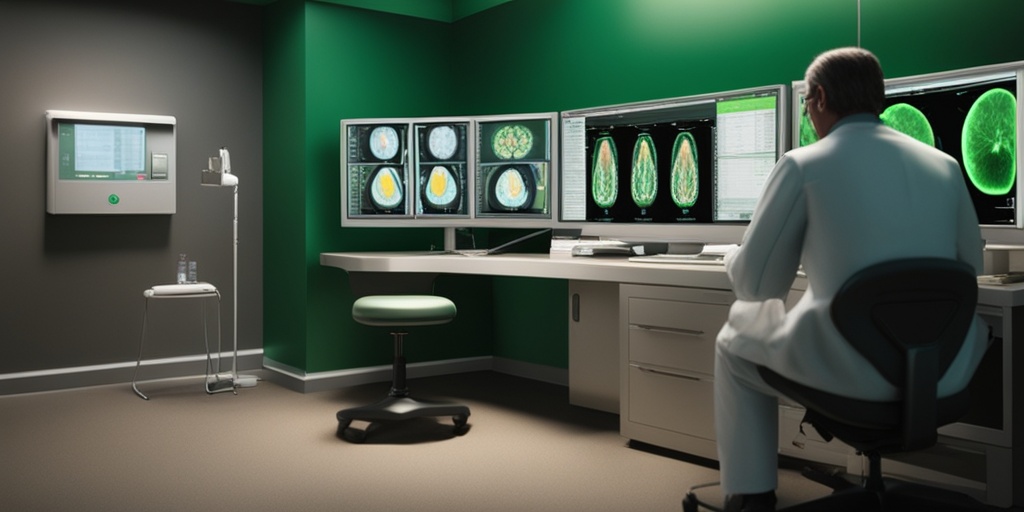
Tuberous Sclerosis Treatment Options
Tuberous sclerosis complex (TSC) is a rare genetic disorder that affects approximately 1 in 6,000 people worldwide. While there is no cure for TSC, various treatment options are available to manage its symptoms and associated health problems. In this section, we’ll explore the different treatment options for tuberous sclerosis.
Medications
Several medications can help alleviate the symptoms of TSC. These include:
- Seizure medications: Anticonvulsants like vigabatrin, carbamazepine, and valproate can help control seizures, which are a common symptom of TSC.
- Rapamycin (sirolimus): This medication has been shown to reduce the size and growth of tumors associated with TSC, particularly in the brain and kidneys.
- Topical creams and ointments: Creams and ointments containing rapamycin or other medications can help treat skin lesions and facial angiofibromas.
- Cardiovascular medications: Medications like beta blockers and ACE inhibitors can help manage high blood pressure, which is a common complication of TSC.
Surgical Interventions
In some cases, surgical interventions may be necessary to treat TSC-related health problems. These include:
- Brain surgery: Surgery may be required to remove brain tumors or to treat hydrocephalus (fluid accumulation in the brain).
- Kidney surgery: Surgery may be necessary to remove kidney tumors or to treat kidney failure.
- Eye surgery: Surgery may be required to treat vision problems or to remove eye tumors.
Therapies and Interventions
In addition to medications and surgical interventions, various therapies and interventions can help manage TSC symptoms and improve quality of life. These include:
- Physical therapy: Physical therapy can help improve mobility and reduce the risk of falls.
- Occupational therapy: Occupational therapy can help individuals with TSC develop skills and strategies to perform daily activities.
- Speech therapy: Speech therapy can help improve communication skills and address speech difficulties.
- Counseling and support: Counseling and support groups can help individuals with TSC and their families cope with the emotional and psychological aspects of the condition.
Tuberous Sclerosis Complications
Tuberous sclerosis complex can lead to various complications, some of which can be severe and life-threatening. It’s essential to be aware of these potential complications to ensure timely medical attention and management.
Neurological Complications
TSC can cause various neurological complications, including:
- Seizures: Seizures are a common complication of TSC, and can range from mild to severe.
- Developmental delays: TSC can cause developmental delays, intellectual disability, and autism spectrum disorder.
- Behavioral problems: Behavioral problems, such as anxiety, depression, and attention deficit hyperactivity disorder (ADHD), can occur in individuals with TSC.
Cardiovascular Complications
TSC can increase the risk of cardiovascular complications, including:
- Heart failure: Heart failure can occur due to the presence of cardiac rhabdomyomas (tumors) or other cardiovascular abnormalities.
- High blood pressure: High blood pressure is a common complication of TSC, which can increase the risk of heart disease and stroke.
Renal Complications
TSC can cause various renal complications, including:
- Kidney tumors: Kidney tumors, such as angiomyolipomas, can occur in individuals with TSC.
- Kidney failure: Kidney failure can occur due to the presence of kidney tumors or other renal abnormalities.
It’s essential to work closely with a healthcare team to manage TSC symptoms and prevent or minimize these complications. With proper treatment and care, individuals with TSC can lead active and fulfilling lives. 💕
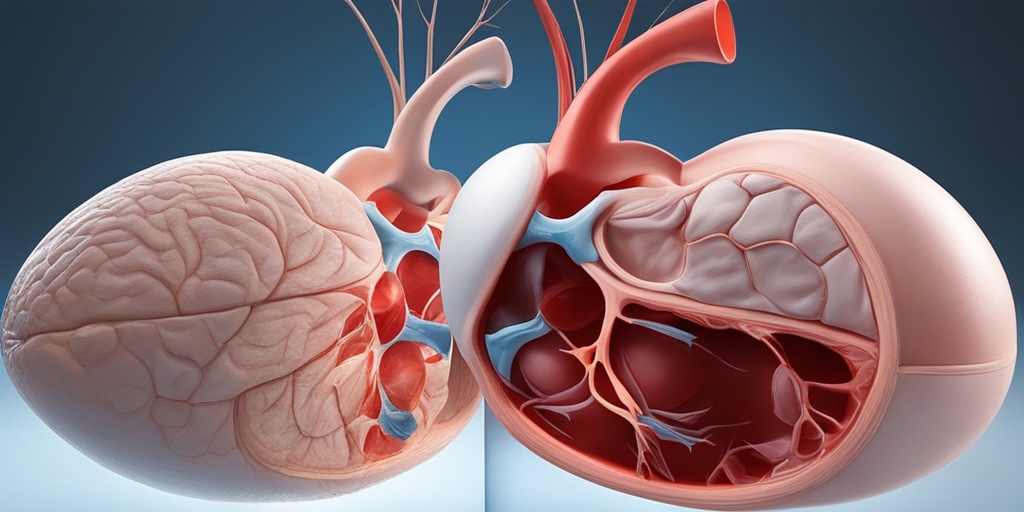
Tuberous Sclerosis and Autism
Tuberous sclerosis complex (TSC) is a rare genetic disorder that affects approximately 1 in 6,000 people worldwide. While it’s primarily known for its impact on the brain, skin, and kidneys, research has also revealed a significant connection between Tuberous Sclerosis and Autism Spectrum Disorder (ASD).
The Prevalence of Autism in TSC
Studies have shown that individuals with Tuberous Sclerosis are at a higher risk of developing Autism Spectrum Disorder. In fact, up to 50% of people with TSC also have ASD. This is significantly higher than the general population, where approximately 1 in 54 children have ASD.
Shared Genetic Factors
Research suggests that the genetic mutations responsible for Tuberous Sclerosis may also contribute to the development of Autism. Both conditions are associated with abnormalities in the mTOR (mechanistic target of rapamycin) pathway, which plays a crucial role in cell growth and development. This shared genetic link may explain why individuals with TSC are more likely to develop ASD.
Similarities in Behavioral Symptoms
Individuals with Tuberous Sclerosis and Autism often exhibit similar behavioral symptoms, including:
- Social communication difficulties
- Repetitive behaviors
- Sensory sensitivities
- Intellectual disability
These similarities can make it challenging to diagnose ASD in individuals with TSC, as the symptoms may be attributed to the underlying genetic disorder. However, a comprehensive diagnosis is essential to provide targeted interventions and support.
Tuberous Sclerosis and Epilepsy
Epilepsy is a common comorbidity in individuals with Tuberous Sclerosis, affecting up to 90% of people with TSC. The seizures associated with epilepsy can have a significant impact on daily life, making it essential to understand the connection between these two conditions.
The Causes of Epilepsy in TSC
The genetic mutations responsible for Tuberous Sclerosis can lead to abnormal brain development, which increases the risk of epilepsy. In particular, the formation of cortical tubers, which are characteristic of TSC, can disrupt normal brain function and lead to seizures.
Types of Seizures in TSC
Individuals with Tuberous Sclerosis can experience a range of seizure types, including:
- Infantile spasms
- Tonic-clonic seizures
- Partial seizures
- Absence seizures
Early diagnosis and treatment of epilepsy are crucial to reducing the risk of seizure-related complications and improving quality of life.
💡 Understanding the connections between Tuberous Sclerosis, Autism, and Epilepsy is essential for providing comprehensive care and support to individuals affected by these conditions. By recognizing the shared genetic factors, similar symptoms, and comorbidities, healthcare professionals can develop targeted interventions to improve outcomes and enhance the quality of life for those affected. 💡
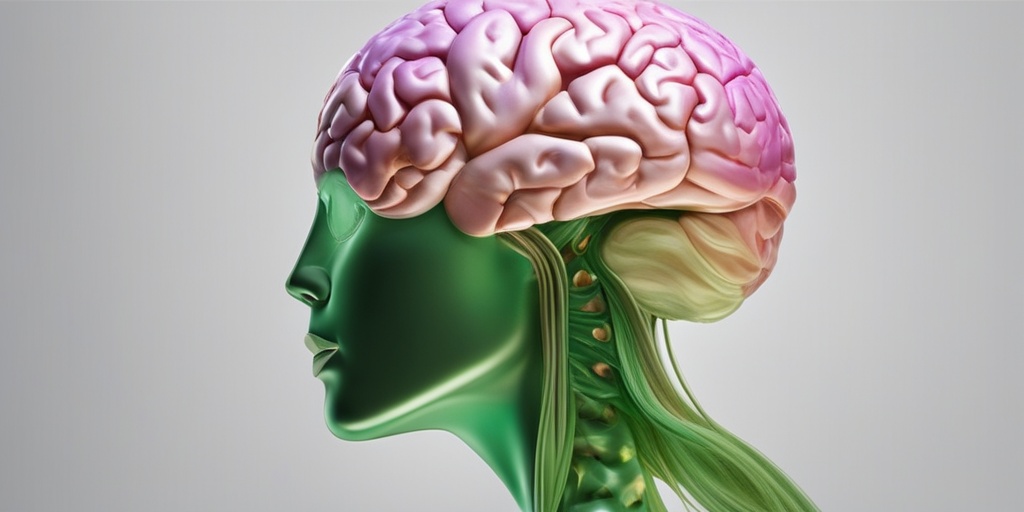
Frequently Asked Questions about Tuberous Sclerosis
What is Tuberous Sclerosis?
Tuberous sclerosis, also known as tuberous sclerosis complex (TSC), is a rare genetic disorder that affects the growth and development of cells in the body. It is characterized by the growth of benign tumors in various organs, including the brain, heart, kidneys, and skin.
What are the symptoms of Tuberous Sclerosis?
The symptoms of TSC vary widely from person to person and can range from mild to severe. Common symptoms include:
- Seizures
- Developmental delays
- Intellectual disability
- Autism
- Behavioral problems
- Skin abnormalities, such as angiofibromas or hypopigmented macules
- Kidney problems, such as cysts or tumors
- Heart problems, such as arrhythmias or cardiomyopathy
- Eye problems, such as retinal hamartomas
How is Tuberous Sclerosis diagnosed?
TSC is typically diagnosed through a combination of clinical evaluation, genetic testing, and imaging studies. A diagnosis may be suspected based on the presence of characteristic skin lesions or other symptoms, and confirmed through genetic testing or imaging studies such as MRI or CT scans.
How is Tuberous Sclerosis treated?
Treatment for TSC typically involves a multidisciplinary approach, involving a team of healthcare professionals including neurologists, cardiologists, nephrologists, and dermatologists. Treatment may include:
- Medications to control seizures or other symptoms
- Surgery to remove tumors or correct physical abnormalities
- Behavioral therapy to address developmental delays or autism
- Supportive care to manage related health problems, such as kidney or heart disease
Is Tuberous Sclerosis inherited?
TSC is a genetic disorder, and it can be inherited in an autosomal dominant pattern. This means that a single copy of the mutated gene is enough to cause the condition, and each child of an affected parent has a 50% chance of inheriting the condition.
What is the prognosis for Tuberous Sclerosis?
The prognosis for TSC varies widely depending on the severity of symptoms and the presence of related health problems. With proper treatment and management, many people with TSC can lead active and fulfilling lives. However, some individuals may experience significant developmental delays, intellectual disability, or other complications.
What is the role of the Tuberous Sclerosis Alliance?
The Tuberous Sclerosis Alliance is a non-profit organization dedicated to providing support, education, and advocacy for individuals and families affected by TSC. The alliance provides resources for diagnosis, treatment, and management, as well as support for research into the causes and treatment of TSC.
How can I get involved in Tuberous Sclerosis research?
There are several ways to get involved in TSC research, including:
- Participating in clinical trials
- Donating to organizations that fund TSC research
- Spreading awareness about TSC through social media or community events
- Volunteering with organizations that support individuals and families affected by TSC
🌟 By getting involved in TSC research, you can help make a difference in the lives of individuals and families affected by this rare genetic disorder.

